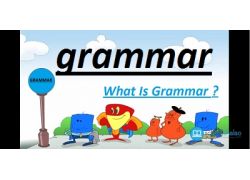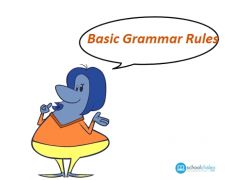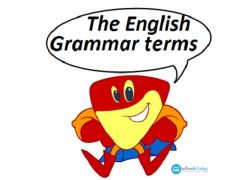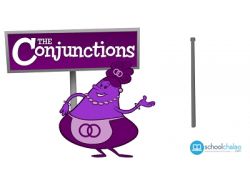Tutorial Library
Learning Point
Past Tenses
Definition of Past Tenses
The past tense is used to describe or indicate an action that began in the past. Depending on how we form the past tense, it might describe actions that happened or were completed in the past, were occurring at the same time as something else in the past, or continued to happen until or near the present time.
Past Simple Tense
It is used to express an action that happened or completed in past, usually a very little time before speaking, or action which is just completed. Time of action is not specified in terms of long time ago or short ago but it make a sense that the action has done a little time ago. For example, a person says, “I watched a movie”, it means the speaker of this sentence watched a movie a little time ago or little time ago in the same day.
Rules: 2nd form of verb (past simple) is used as main verb in the positive sentences and base form is used in negative and interrogative sentences.
Structure of sentences
Positive Sentence
• Subject + main verb (past simple) + object
• Subject + 2nd form of verb (past simple) + object
Examples
I killed a snake
He ate a mango.
Negative sentences
• Subject + (auxiliary verb + not) main verb (base form) + object
• Subject + did not + 1st form of verb or base form + object
In negative sentence “did not” is written and the 1st form of verb (base verb) is used instead of using 2nd form (or past simple verb).
Examples.
I did not kill a snake
He did not eat a mango.
Interrogative sentences
• Auxiliary verb + subject + main verb (base verb) + object
• Did + subject + 1st form of verb (or base verb) + object
Interrogative sentence starts with “did” and the 1st form of verb (base verb) is used instead of using 2nd form (or past simple verb).
Examples
Did I kill a snake?
Did he eat a mango?
More Examples
Positive sentences
He gave me a gift
They went to cinema.
She wrote a letter to him.
I made a table.
You answered correctly.
Negative sentences
He did not give me a gift
They did not go to cinema.
She did not write a letter to him.
I did not make a table.
You did not answer correctly.
Interrogative sentences
Did he give me a gift?
Did they go to cinema?
Did she write a letter to him?
Did I make a table?
Did you answer correctly?
More Examples.
Positive Sentences
They have gone to school.
They have bought a new car.
I have started a job
It has rained.
The guests have arrived
John has left for home.
You have told a lie.
Negative Sentences
They have not gone to school.
They have not bought a new car.
I have not started a job
It has not rained.
The guests have not arrived.
John has not left for home.
You have not told a lie.
Interrogative Sentences
Have they gone to school?
Have they bought a new car?
Have I started a job?
Has it rained?
Have the guests arrived?
Has John left for home?
Have you told a lie?
Past Continuous tense
It is used to express a continued or ongoing action in past, an ongoing action which occurred in past and completed at some point in past. It expresses an ongoing nature of an action in past. For example, “he was laughing.” This sentence shows ongoing action (laughing) of a person which occurred in past. Past continuous tense is also called past progressive.
Rules: Auxiliary verb “was or were” is used in sentence. 1st form of verb or base verb + ing (present participle) is used as main verb in sentence.
Structure of sentence
Positive sentences
• Subject + auxiliary verb + Main Verb (present participle) + object
• Subject + was/were + (1st form of verb or base verb +ing) +object
If the subject is “he, she, It, I, singular or proper noun” then auxiliary verb “was” is used. If subject is “you, we, they or plural” then auxiliary verb “were” is used.
Examples.
She was crying yesterday.
They were climbing on a hill.
Negative sentences
• Subject + auxiliary verb + NOT + Main verb (present participle) + object
• Subject + was/were + NOT + (1st form of verb or base verb +ing) +object
Rules for using auxiliary verb after subject are same as mentioned above.
Examples.
She was not crying yesterday.
They were not climbing on a hill.
Interrogative sentences
• Auxiliary verb + Subject + Main verb (present participle) + object
• Was/were + Subject + (1st form of verb or base verb +ing) +object
The interrogative sentence starts with the auxiliary verb. If the subject is “he, she, It, I, singular or proper noun” then the sentence starts with auxiliary verb “was”. If subject is “you, we, they or plural” then the sentence starts with auxiliary verb “were”.
Examples.
Was she crying yesterday?
Were they climbing on a hill?
More Examples
Positive sentences
They were laughing at the joker.
He was taking exam last month
You waiting for him yesterday
She was working in a factory.
It was raining yesterday.
Negative sentences
They were not laughing at the joker.
He was not taking exam last month
You were not waiting for him yesterday
She was not working in a factory.
It was not raining yesterday.
Interrogative sentences
Were they laughing at the joker?
Was he taking exam last month?
Were you waiting for him yesterday?
Was she working in a factory?
Was it raining yesterday?
Past perfect tense
It is used to express an action which has occurred in past (usually, a long time ago) and action which has occurred in past before another action in past.
For example,
I had lived in America. (The sense of time in this sentence refers to a completed action in past and especially a long time ago)
The students had gone before the teacher came. (The first part of sentence “The student has gone” is sentence of past perfect tense, it says about an action which occurred before another action in past which is “the teacher came”. The second part “the teacher came” is sentence of past simple tense. So such a sentence which express an action in past before another action in past comprises two parts where the first part of sentence is past perfect tense)
Rules. Auxiliary verb “had” is used in sentence. 3rd form of verb (past participle) is used as main verb in sentence
Structure of sentence.
Positive sentence
• Subject + auxiliary verb + main verb (past participle) + object
• Subject + had + 3rd form of verb or past participle + object
Examples.
He had taken the exam last year
A thief had stolen my watch.
Negative sentence
• Subject + auxiliary verb + NOT + main verb (past participle) + object
•Subject + had + not + 3rd form of verb or past participle + object
“Not” is written after auxiliary verb in negative sentence.
Examples.
He had not taken the exam last year
A thief had not stolen my watch.
Interrogative sentence
• Auxiliary verb + subject + main verb (past participle) + object
• Had + subject + 3rd form of verb or past participle + object
Interrogative sentence starts with auxiliary verb “had”
Examples.
Had he taken the exam last year
Had a thief stolen my watch?
More Examples
Positive sentences
They had visited a doctor.
He had slept.
I had finished my work last year.
It had rained heavily last month.
The film had started before we reached cinema.
Negative sentences
They had not visited a doctor.
He had not slept.
I had not finished my work last year.
It had not rained heavily last month.
The film had not started before we reached cinema.
Interrogative sentences
Had they visited a doctor?
Had he slept?
Had I finished my work last year?
Had it rained heavily last month?
Had the film started before we reached cinema.
Past Perfect continuous tense
It is used to express a continued or ongoing action that started in past and continued until sometime in past. (Remember, an ongoing action in past which continued till some time in past) There will be a time reference, such as “since 1980, for three hours etc” from which the action had started. A sense of time reference is found in these sentences which shows that action had started in past and continued till some time in past. Such time reference or sense of reference is the identity of Present perfect continuous tense because it tells that action has started from a particular time in past or for some time period. For example, “He had been studying in this school since 2005”, so the it means that he had started his education in this school in 2005 and he studied in this school till sometime in past.
Note: If there is not time reference or sense of time reference, then it is not Past perfect continuous tense because there is no hint about the time of action when it started in past or continued for some time period, so it seems just an ongoing action in past which resembles “past Continuous tense”. So the reference of time differentiates between Past perfect continuous tense and past continuous tense.
Rules: An auxiliary verb “had been” is used in sentence. 1st form of verb (base verb) +ing (present participle) is used as main verb in sentence. “Since” or “for” is used before the “time reference” in sentence. If the time reference is exactly known such as 1995, 4 O’clock then “since” is used before the time in sentence. If the time reference is not exactly known such as three hours, six years, four days, then “for” is used before the time in sentence. Time reference such as 3 hours or 5 days is not exactly known because we don’t know that about which three hours a day is told in sentence or about which 5 days in a month is told in sentence. While the 1995 is exactly known time.
Structure of sentence.
Positive Sentence.
• Subject + Auxiliary verb + main verb (Present participle) + Object + Time reference
• Subject + had been + (1st form of verb or base verb + ing) + object + time reference
Examples.
I had been waiting for him for one hour.
She had been playing chess since 7 O’clock.
Negative Sentence.
• Subject +”Not” between the Auxiliary verbs + main verb (present participle) + Object + Time reference
• Subject + had not been + (1st form of verb or base verb + ing) + object + time reference
To make negative sentence, the word “not” is added inside auxiliary verb, so it becomes “had not been”.
Examples.
I had not been waiting for him for one hour.
She had not been playing chess since 7 O’clock.
Interrogative Sentence.
• Auxiliary verb+ Subject + Auxiliary verb + main verb (present participle) + object + time reference
• Had + Subject + been + (1st form of verb or base verb+ing) + object + time reference
Interrogative sentence starts with auxiliary verb “had” and auxiliary verb “been” is used after subject in sentence.
Examples.
Had I been waiting for him for one hour?
Had she been playing chess 7 O’clock?
More examples.
Positive sentences
I had been living in America since 2003.
He had been playing cricket for two hours.
They had been watching television since 6 O’clock.
She had been working in this office since 2007.
It had been raining for three days.
Negative sentences
I had not been living in America since 2003.
He had not been playing cricket for two hours.
They had not been watching television since 6 O’clock.
She had not been working in this office since 2007.
It had not been raining for three days.
Interrogative sentences
Had I been living in America since 2003?
Had he been playing cricket for two hours.
Had they been watching television since 6 O’clock?
Had she been working in this office since 2007?
Had it been raining for three days?
Very Useful (0)
Useful (0)
Not Useful (0)
Please login to your account by completing this form
Reset Your password
Please enter the email address you signed up with and we'll send you a password reset link.
A reset password link has been generated and will be sent to you via email.
You can then follow that link and select a new password.
Completing that action will allow you to reset your password and then you can insert a new one.
Please enter the email address you signed up with and we'll send you a password reset link.
A reset password link has been generated and will be sent to you via email.
You can then follow that link and select a new password.
Completing that action will allow you to reset your password and then you can insert a new one.





